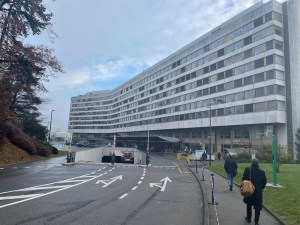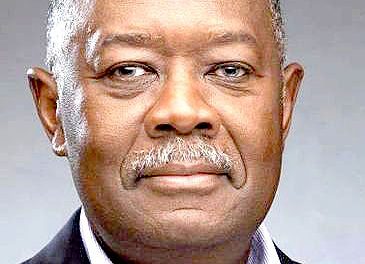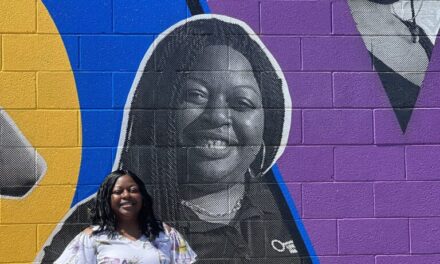By DaQuan Lawrence,
Special to the AFRO
Global reparations, recourse for the Trans-Atlantic slave trade and colonization, as well as wars and authoritarian regimes in Africa were among some of the issues raised during the inaugural session of the United Nations’ Permanent Forum on People of African Descent (PFPAD) held in Geneva, Switzerland, Dec. 5 to 8, 2022.
The Forum was established in August 2021, and will act as an advisory body to the UN Human Rights Council and serve as “a consultative mechanism for people of African descent and other relevant stakeholders” and “platform for improving the safety and quality of life and livelihoods of people of African descent.”
The inaugural convening consisted of over 600 delegates and drew an international and intergenerational network of grassroots, nongovernment and public sector advocates in addition to other human rights defenders from UN member states.
Collectively, representatives called for the institutional protection of human rights for African descendants worldwide. Many delegates discussed how systemic or structural racism and xenophobia currently negatively and disproportionately impact people of African descent.
Siphiwe Baleka, a delegate for Guinea-Bissau and president of the Balanta B’urassa History and Genealogy Society in America, was among those who spoke at the event, and he also shared his thoughts with the AFRO.
The Balanta B’urassa Society is a nonprofit dedicated to informing African descendants about the importance of family genealogy and history research and facilitating the repair of the Balanta people who were victimized by the Trans-Atlantic slave trade.
In his comments at the Geneva convening, Baleka, a Pan-African scholar activist and graduate of Yale University who was pivotal in launching Guinea Bissau’s Decade of Return Initiative, openly and eloquently addressed the legacy of colonialism, referencing international law and global historical precedents.
“This Ethnocide committed by European colonial powers and their successor states is a crime against humanity that has no statute of limitations and has not been punished nor repaired,” Baleka said.
“The Geneva Conventions say that prisoners of war remain so until their final release and repatriation. The Durban Declaration…recommends the facilitation of ‘welcomed return and resettlement of the descendants of enslaved Africans… and urges all states to facilitate all appropriate legal procedures and free legal assistance,’” he continued.
The Geneva Convention and their Additional Protocols constitute international rules that supposedly limit the barbarity of warfare. The Durban Declaration and Programme of Action (DDPA) is a resolution passed after the 2001 World Conference Against Racism, Racial Discrimination, Xenophobia and Related Intolerance, that called for tangible actions by states and other actors to eliminate racism, racial discrimination, xenophobia and related prejudice.
Peter Kuel, a delegate for South Sudan, is president of South Sudan International Advocacy for Human Rights, a nongovernmental human rights organization that seeks to improve the human rights condition in the Republic of South Sudan and to protect human rights for people violated by institutions around the world.
A native of Mayon County in Unity, South Sudan, Kuel explicitly addressed the contemporary human rights situation in South Sudan – which has been mired in political and intercommunal unrest since December 2013 – in his remarks in Geneva.
He further told the AFRO that the Forum could help squelch the conflicts in his native country by either indicting the leaders responsible or pressuring them to change.
“There needs to be a recognition that staying in power for additional 12-40 years creates a tribal or clan-like mindset which sets the stage for intra-state wars, leaving people desperately seeking refuge in other countries. [But] instead of finding safety in these shelters, they have found slavery in Arabic countries, that is, slavery in Libya and death in the Mediterranean Sea,” Kuel said.
“The lack of respect for Africans amongst African dictators and leaders is the main factor behind why Black people are not respected by the various government bodies,” he continued. “We must hold our leaders within Africa and the Diaspora accountable for their actions that denigrate the countries and the people they lead.”
Reflecting on the Forum sessions with the AFRO, Baleka said, “It was an extraordinary vibe and deep global Pan African solidarity amongst delegates.”
However, he said, despite the event’s good vibes, society’s underlying power structure remains unchanged.
“The UN, international law and the current world order is nothing more than the scientific refinement of colonialism and White supremacy,” he said.
Baleka further added that while at the UN they engage in diplomacy to settle mitigate conflict, the ills facing people of African descent will not be cured without the Diaspora’s engagement.
“Until the global African Diaspora signals that we have that capacity for transnational unity, our diplomacy has no teeth,” Baleka said. He added, “I believe global solidarity and unity within civil society is the best way to fight the situation facing Black people worldwide. African leaders need to be the forerunners of treating Black people with dignity.”
The second session of the Permanent Forum on People of African Descent is scheduled for May 30 – June 2, 2023 at the UN Secretariat in New York City.
Help us Continue to tell OUR Story and join the AFRO family as a member –subscribers are now members! Join here!
The post Reparations, Black unity among issues raised at debut of UN’s Permanent Forum on People of African Descent appeared first on AFRO American Newspapers .










